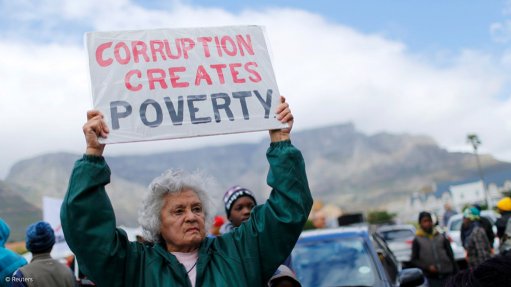Keeping up with the coup-dashians
Reality television lovers would be familiar with Keeping up with the Kardashians, the American series that focused on the personal and professional lives of the blended Kardashian-Jenner family and aired between 2007 and 2021. Since its inception about six years ago, this column has consistently kept readers abreast of an equivalent of sorts of the Kardashians and Jenners. These are African military officers who seize State power for all manner of reasons. I call them the coup-dashians, and it appears they are going to be around for a long time yet.
The main protagonists in the latest airing of the coup-dashians series are members of the Republican Guard in the Central African nation of Gabon. They ousted the country’s President, Ali Bongo, on August 30 – literally hours after it was announced he had won a third term – amid allegations of massive vote fraud by a partisan elections body. Bongo had governed for 14 years, and his predecessor was his late father, who was at the helm for 42 years, meaning that a Bongo had been in charge for an uninterrupted 56 years.
The new man in charge, albeit in an interim capacity, is the coup leader and former head of Republican Guard. He said all the right things at his inauguration early this month: the granting of amnesty to political prisoners, the restoration of good governance and the introduction of a new electoral process that would ensure the holding of free, transparent elections. But he was mum on when the new elections would be held. My sense is we should brace for many years with him as Gabon’s military head of State. For all we know, he could reinvent himself as a civilian politician and win the transparent elections he has promised, thanks to the advantage of incumbency.
Predictably, the takeover drew condemnation from the Central African regional bloc, known to much of the world by its French acronym of ECCAS, and the African Union. As I have remarked before, coup-dashians’ immediate reaction to denunciation by Africa’s multilateral institutions must be to chortle to themselves, secure in the knowledge that there would be no major consequences. However, as the likes of The Gambia’s Yahya Jammeh would testify, the West African bloc has on occasion proved that it’s not all bark and no bite. But it too seems to be growing weary.
Just more than a month before Bongo’s overthrow, officers in Niger had shot their way to State power. The Gabon and Niger coups are but two of the eight that Africa has witnessed since the turn of this decade. The other countries where the military staged power grabs are Mali, in August 2020, Chad (April 2021), Guinea (September 2021), Sudan (October 2021), and Burkina Faso (January and September 2022).
The frequency of coups in Africa was quite high in the early decades of independence, from the 1960s to 2000, with an average of four – both successful and foiled – occurring each year during this period. Refreshingly, there was a significant decline from the turn of the millennium until 2020.
Should the sudden upsurge in the past four years be a cause for concern? An African Development Bank study published in 2012 may hold the answer – it found that countries that had experienced coups in the decade prior to the study’s publication had ranked lowly in terms of governance, standards of living, respect for human rights and the degree of liberalisation.
Many African countries fall short on these metrics. This seems to explain why news of Bongo’s ouster prompted cheering crowds to pour on to the streets of Gabon’s towns and cities, invoking memories of similar scenes in Niger a month earlier. Likewise, there was widespread jubilation in Guinea when the country’s President – who had extended his stay despite stiff opposition – was removed from office.
Clearly, this positive reaction to military takeovers – which are nothing less than a disruption of democracy – is an expression of deep-seated frustration with Africa’s civilian leaders. They ought to do better.
Article Enquiry
Email Article
Save Article
Feedback
To advertise email advertising@creamermedia.co.za or click here
Comments
Press Office
Announcements
What's On
Subscribe to improve your user experience...
Option 1 (equivalent of R125 a month):
Receive a weekly copy of Creamer Media's Engineering News & Mining Weekly magazine
(print copy for those in South Africa and e-magazine for those outside of South Africa)
Receive daily email newsletters
Access to full search results
Access archive of magazine back copies
Access to Projects in Progress
Access to ONE Research Report of your choice in PDF format
Option 2 (equivalent of R375 a month):
All benefits from Option 1
PLUS
Access to Creamer Media's Research Channel Africa for ALL Research Reports, in PDF format, on various industrial and mining sectors
including Electricity; Water; Energy Transition; Hydrogen; Roads, Rail and Ports; Coal; Gold; Platinum; Battery Metals; etc.
Already a subscriber?
Forgotten your password?
Receive weekly copy of Creamer Media's Engineering News & Mining Weekly magazine (print copy for those in South Africa and e-magazine for those outside of South Africa)
➕
Recieve daily email newsletters
➕
Access to full search results
➕
Access archive of magazine back copies
➕
Access to Projects in Progress
➕
Access to ONE Research Report of your choice in PDF format
RESEARCH CHANNEL AFRICA
R4500 (equivalent of R375 a month)
SUBSCRIBEAll benefits from Option 1
➕
Access to Creamer Media's Research Channel Africa for ALL Research Reports on various industrial and mining sectors, in PDF format, including on:
Electricity
➕
Water
➕
Energy Transition
➕
Hydrogen
➕
Roads, Rail and Ports
➕
Coal
➕
Gold
➕
Platinum
➕
Battery Metals
➕
etc.
Receive all benefits from Option 1 or Option 2 delivered to numerous people at your company
➕
Multiple User names and Passwords for simultaneous log-ins
➕
Intranet integration access to all in your organisation


















